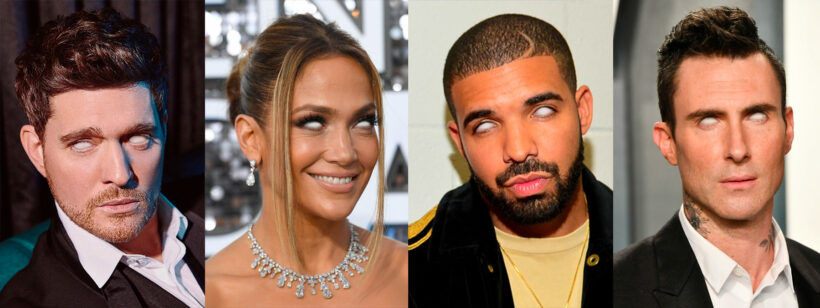It’ll be interesting to see how musicians and singers deal with what has unfolded and what’s about to unfold via the new AI technologies that are coming down the pike in this decade we’re in. Frankly, what concerns me are not the overt uses of auto-tuning, eardrum splittingly dreadful as they are, but rather the subtler forms of pitch alteration and quantized performance “correction” that are becoming so ubiquitous in today’s music scene.
Most listeners aren’t aware of how often these tools are used, even on recordings (and in live performances) by artists you’d think wouldn’t use them and/or would never need to go near them. For instance, Michael Buble, who can actually sing very well, uses auto-tuning and pitch correction on his recordings and even, at times, during his live shows. You can bet that if people like Aretha Franklin and Ella Fitzgerald. who both happened to have unusually keen senses of pitch, were recording today they would probably be under pressure from record company higher ups to use auto-tuning on their recordings as well.
What these record executives, who usually know next to nothing about music, don’t understand is that it is precisely the subtle, often unconsciously observed “imperfections” in someone like Aretha Franklin’s note perfect performances that give them their character, that give them their Soul.
Basically speaking, auto-tuning flattens out the waveform that is produced by the vibrational modulations that make up the substance of a natural human voice. This alters the voice’s sound in such a way that each note is hit with a level of micro-precision that is simply not possible for a human being to achieve. This can be done glaringly, as it is on someone like the rapper Drake’s recordings, creating a sort of robot on quaaludes-like sound effect. It can also be done more subtly, as it is on singers like Adam Levine and Michael Buble’s voices. The result, in the case of someone like Buble, is unnoticeable at a conscious level to most listeners.
To a more trained ear though there is a sort of pinpoint uniformity to the tone and feel of a lot of the singing, even on subtly auto-tuned records, that doesn’t wear well over the course of multiple listens. It’s like eating a chocolate bar, which at first is titillating to the taste buds. After eating two or three of them though you feel like you need to take a break from chocolate for a while. How many Maroon 5 bars can you get through before the insides of your eyelids start to itch? If you’re like me, after a long cup of silence you’re gonna soon feel you need to ingest something more substantial, something with some protein. Maybe Link Wray or Peggy Lee or Public Enemy … or a salad or something.
Then of course there are the droves of sub-mediocre “artists” who need performance enhancing technology to make themselves sound mediocre, to make themselves sound presentable. Jennifer Lopez, who is close to tone-def without the help of pitch-correction, comes to mind. She is just one of what are now many thousands of well-known and lesser known singers who use auto-tuning just to get by in the studio and in live settings.
I’m not saying that this technology is “bad” or “wrong” in and of itself. Not at all. In fact many of the most interesting, groundbreaking musical innovations that have come about over the last 75-plus years have been new technology driven. What I’m getting at is that if you’re going to call yourself a musician or a singer then it’s incumbent upon you a) not to suck, and b) if you’re gonna use these new technologies to use them in an innovative and/or genuinely self-expressive way.
If you’re using auto-tuning and/or quantized performance correction technology to make yourself sound more “perfect” and/or more “commercial” then, well, you almost certainly should be doing something else… like trading stocks or running for public office or building a TikTok brand or something. There are plenty of other ways to make a name for yourself out there, if that’s what you’re after.










